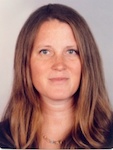AG Beckervordersandforth
AG Beckervordersandforth
Group Leader:
PD Dr. rer. nat. Ruth Beckervordersandforth-Bonk
Institut für Biochemie
Lehrstuhl für Biochemie und Molekulare Medizin (Prof. Dr. Bosserhoff)
- Telefon: +49 9131 85-26206
- E-Mail: ruth.beckervordersandforth@fau.de
Research Interest
In the adult hippocampus a pool of neural stem cells (NSCs) continuously generates new neurons that are integrated into existing circuitries. This neurogenesis is regarded as a key contributor to the adult’s brain plasticity. It keeps the brain capable of dynamic cellular and molecular remodeling in response to an individual´s interaction with the outside world and involves higher cognitive function such as memory processes as well as certain affective behaviors. From a clinical point of view adult neurogenesis is highly relevant as dysregulation is evolving as a significant contributor to neuropsychiatric symptoms in several neurodegenerative diseases.
Adult NSCs, like most somatic stem cells in an adult organism, reside within a specific environment or ’niche‘, which provides structural support and functionally regulates NSC proliferation and differentiation. Astrocytes are major components of the neurogenic niche but their dynamic and functional heterogeneity have been largely neglected. To date it is known that astrocytes contribute to neurogenesis-mediated plasticity in two ways: firstly by serving as neural stem cells (NSCs) that give rise to new hippocampal neurons; secondly by serving as niche cells that control the activity of stem cells and provide structural and functional support to neurons. Highlighting their critical role, an increasing number of neurodegenerative and neuropsychiatric disorders have been associated with deficits in astrocyte function, including Alzheimer’s disease, Parkinson’s disease, and major depressive disorders (MDDs). However, the role of astrocytes in pathophysiology and treatment of those diseases are poorly characterized and only recently started to be investigated. Once considered merely the glue that holds the brain together, it is now increasingly recognized that astrocytes contribute fundamentally to neuronal function and that integrity of the brain is highly dependent on homeostasis between all functional components.
We are interested in the cellular and molecular mechanisms underlying plasticity of the mammalian brain. While many studies have been focused on the role of neurons, we aim to unravel the hitherto unknown role of astrocytes in modulation and regulation of hippocampal plasticity in health and disease, pursuing the novel concept that morphologically and functionally distinct astrocyte subtypes modulate plasticity in the adult mammalian hippocampus through stimulus-dependent astrogliogenesis.
Adult NSCs, like most somatic stem cells in an adult organism, reside within a specific environment or ’niche‘, which provides structural support and functionally regulates NSC proliferation and differentiation. Astrocytes are major components of the neurogenic niche but their dynamic and functional heterogeneity have been largely neglected. To date it is known that astrocytes contribute to neurogenesis-mediated plasticity in two ways: firstly by serving as neural stem cells (NSCs) that give rise to new hippocampal neurons; secondly by serving as niche cells that control the activity of stem cells and provide structural and functional support to neurons. Highlighting their critical role, an increasing number of neurodegenerative and neuropsychiatric disorders have been associated with deficits in astrocyte function, including Alzheimer’s disease, Parkinson’s disease, and major depressive disorders (MDDs). However, the role of astrocytes in pathophysiology and treatment of those diseases are poorly characterized and only recently started to be investigated. Once considered merely the glue that holds the brain together, it is now increasingly recognized that astrocytes contribute fundamentally to neuronal function and that integrity of the brain is highly dependent on homeostasis between all functional components.
We are interested in the cellular and molecular mechanisms underlying plasticity of the mammalian brain. While many studies have been focused on the role of neurons, we aim to unravel the hitherto unknown role of astrocytes in modulation and regulation of hippocampal plasticity in health and disease, pursuing the novel concept that morphologically and functionally distinct astrocyte subtypes modulate plasticity in the adult mammalian hippocampus through stimulus-dependent astrogliogenesis.


